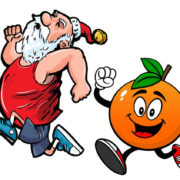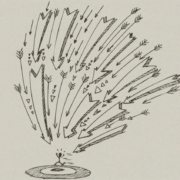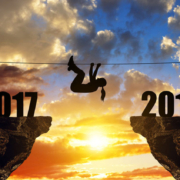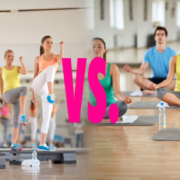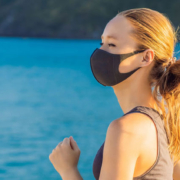Triathlon Observations: Prepare to Compete
Let me be clear: I think that the single most important thing that you can do to be healthy is to exercise regularly. Whether walking, swimming, or one of the hundreds of other types of exercise, talking with your physician about it may be all that’s required for you to get started.
Moving from exercise that helps your health to competing in fitness events requires more—that’s independent of your body weight lest you think I’m talking only about the very heavy people that competed in the triathlon. Here’s what I recommend.
First, you should have a stress test that assesses how your heart and blood vessels perform under maximal conditions. That applies to men over 40 and women over 50, for sure. But I also think if you have been overweight for over five years, you should have the test regardless of age. The maximal exercise test is not foolproof, but it’s the best available predictor of heart problems. This isn’t just me being a worrier; I’m sad to report that one participant died of a heart attack last Sunday. Getting checked out before you start is the best way to protect yourself.
Second, you should have a complete lipid profile, HbA1c, and a blood insulin test as a minimum. As I suggested in Thursday’s memo, you need to know whether you’re a prediabetic or even an undiagnosed type 2 diabetic. The best option for you would be to exercise, but when you push yourself hard for long periods of time, it’s going to affect your blood sugar levels as it would affect a diabetic’s, not someone who has a normal carbohydrate metabolism; for instance, you could pass out if your blood sugar gets too low, and if you’re out alone on a run, that’s a problem. You can deal with it, but you have to know if it’s an issue.
Third, you should get an orthopedic analysis. By that I mean that your joints should be evaluated for range of motion, tendon and ligament stability, and gait. Swimming affects the shoulders, bicycling the lower back, and running the hips, knees, and feet. Any abnormality will be exacerbated; for example, the forces you create when you run is five times your body weight. Do the math—that’s a lot of stress on your knees and feet.
Once you get the all clear, get after it. Start conservatively but if you have the urge to compete to see what you’re capable of, do it. I think if you want a challenge, whether to walk or run a 5K, swim a mile, or bike 50 miles, or combine them into a single event such as the triathlon, you should do it. Just make sure you get your body checked out before you do.
Final Observation
While I believe exercise is important no matter the level at which you do it, exercise won’t help you lose a lot of weight. Surprised? Remember the size of the people I mentioned that competed in the triathlon—not just overweight but obese? If they had put in the training, and I know some of the competitors and know that they did, you’d have thought they would have lost a significant amount of weight. They didn’t.
Burning calories helps with weight loss, but as a well-known expert once said “Americans can’t out run their appetites.” If you could exercise six or eight hours a day, you could probably lose weight without changing your diet, but I doubt you have that kind of time. You can use exercise as a tool to help you lose weight, and exercise pays major benefits in fitness, strength, and stamina. But you will not lose weight unless you also eat less and eat better.
What are you prepared to do today?
Dr. Chet


